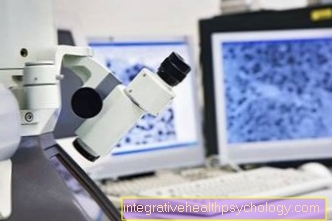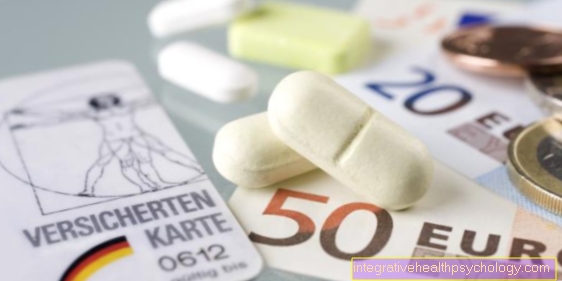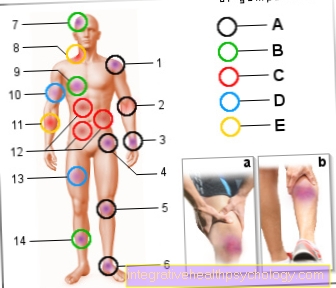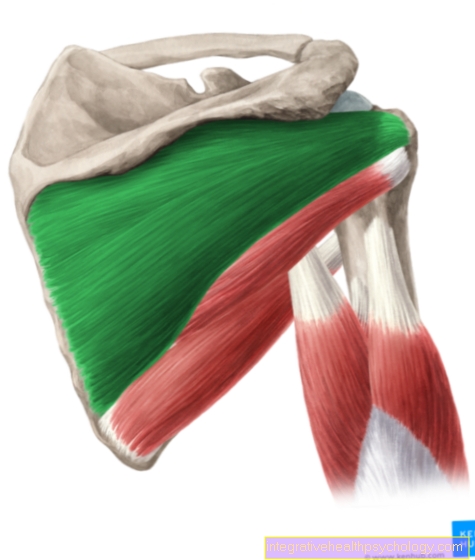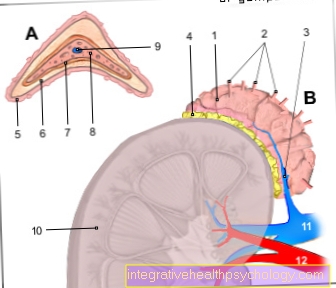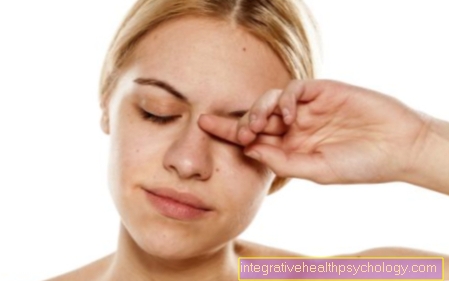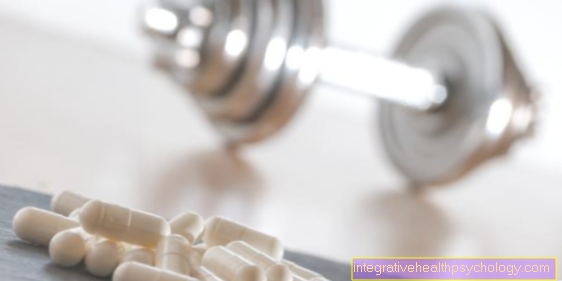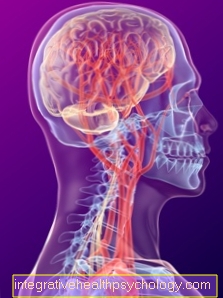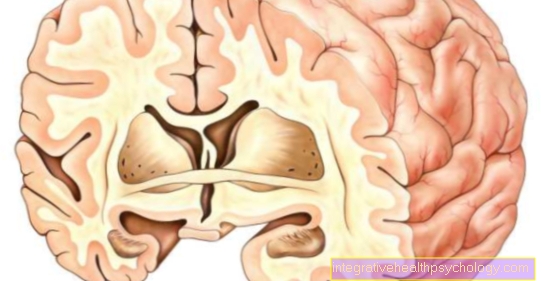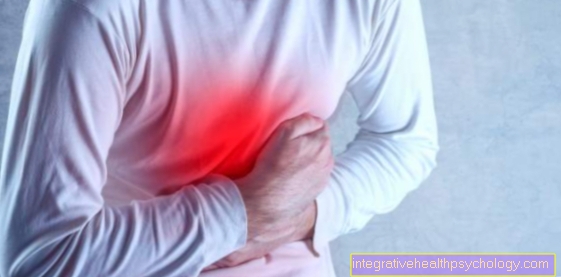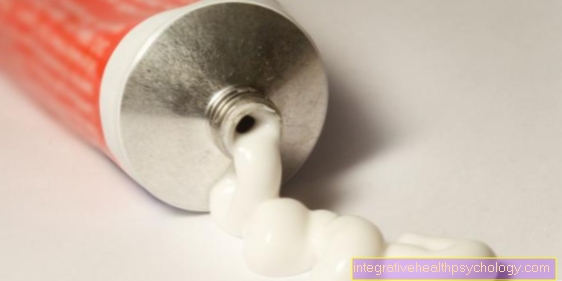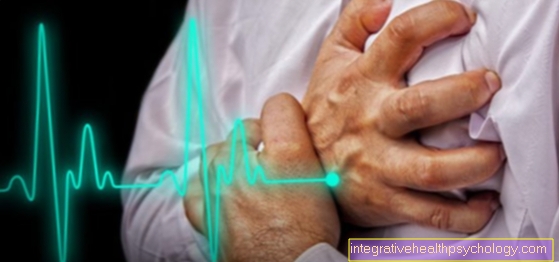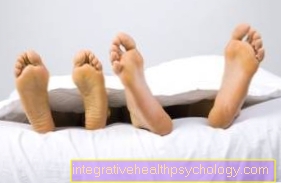Pill and alcohol - are they compatible?
introduction
The pill is a contraceptive that is taken by mouth (orally) (Contraceptive). A distinction is made between the classic pill and the mini pill, where both work in a similar way and prevent the egg cell from entering the uterus (uterus) can nest. In addition, the pill prevents ovulation, so there shouldn't be any chance that the egg could come into contact with the man's sperm.
So that the pill can develop its effect and is also safe, one should observe various interactions of the pill and, for example, make sure that the pill is always taken at the same time and that the pill is never forgotten or "lost" in any other way.

Pill and alcohol - are they compatible?
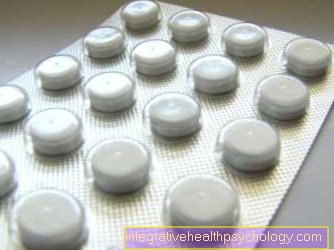
In general, it has to be said that the pill is a drug that interacts with other drugs and active ingredients and thus the effect the pill possibly lost can go. It is therefore important that a few things be observed when taking the pill.
The pill and Alcohol goes wellbecause the pill is not metabolized through the same enzymes as alcohol (ethanol). This means that you can take the pill and alcohol at the same time without having to worry that the pill will lose its effectiveness or that the effect of the alcohol will be increased.
But, pill and alcohol, are they really compatible? The question is not whether the pill and alcohol are compatible, but rather whether they are Consequential damage of alcohol get along with the pill. Many patients do not feel well after consuming alcohol and have to to hand over. In this case, the pill may not have been in the body long enough and yours Not having an effect could.
Please also read: Pill doesn't work
It is believed to be the pill about four hours takes until they start from the intestines absorbed into the blood has been. Nevertheless, it can be the case that through alcohol consumption the Recording delayed becomes. If the patient vomits after consuming alcohol, it may be that the pill has not yet worked. In this case a second pill taken become.
In general, one can say that, unlike antibiotics, the pill and alcohol are well tolerated because it is too no interactions comes. Still is be careful, especially with excessive alcohol consumption, as it can lead to forgetting to take a pill.
Pill and alcohol - influencing the effect
The Effect of the pill is caused by different drugs, such as different Antibiotics or Johannis herbs, limited or even complete canceled. The reason for this is one interaction with a Liver enzyme, the so-called Cytochrome P 450. This enzyme ensures that the pill is in the body recovered and its active ingredients can unfold. The enzyme also ensures that various antibiotics and St. John's wort can develop their effects. If a patient takes antibiotics together with the pill, the liver enzyme metabolizes the antibiotic, but has no more capacities, around to recycle the pill. The pill thus remains in the body and is excreted without having had any effect.
However, it is different with the Pill and alcohol. The pill and alcohol are over different enzymes recovered and thus the effectiveness of the pill is due to alcohol not affected. In principle, the amount of alcohol consumed is also irrelevant, as the pill can still develop its effect even with larger amounts of alcohol. So there is no loss of the pill's effectiveness with alcohol consumption. Still, caution is advised as it goes through alcohol-related vomiting it can happen that the pill gets out of the body again before it can take effect. In this case, there is no longer any protection or effectiveness of the pill, and this is not due to the alcohol, but to the subsequent vomiting.
Pill and Alcohol - Drinking and Smoking
The pill is a medication that is used for contraception (preventing you from becoming pregnant). As with all other drugs, various substances can weaken the effect of the pill or cause the pill to lose its effectiveness completely and therefore no longer protect it. For example, when taking certain antibiotics, the effect of the pill can be weakened or even completely canceled. However, alcohol does not affect the pill's effectiveness.
Many patients who drink and smoke alcohol fear an interaction with the pill. It is important to know that smoking or alcohol does not affect the way the pill works, but certain other medical problems can arise. The combination of smoking and pill intake in particular leads to increased damage to the blood vessels. The development of high blood pressure is promoted (Hypertension), there is also an increased risk of thrombosis. A thrombosis is a blood clot (Blood clot), which mainly consists of the blood platelets, the thrombocytes. These blood clots can be deposited in the veins of the legs and can lead to severe pain when walking, especially with age, as the blood supply to the legs is severely restricted by the blood clot. In addition, thromboses and pulmonary embolisms can also occur at a young age, which in the worst case can even be associated with death.
The pill and smoking at the same time are therefore not a good combination, as they lead to all sorts of problems, some of which only become noticeable 10 years later. An interaction, in the sense of ineffectiveness of the pill, however, is not to be feared. Even in combination with smoking, there is no risk of an altered effectiveness of the pill or alcohol. Nevertheless, it should be said that neither excessive alcohol consumption nor smoking are beneficial to health and in the long run lead to many illnesses and deaths.
Read more on the subject at: Risk of thrombosis when taking birth control pills.
Pill and diarrhea / nausea / vomiting
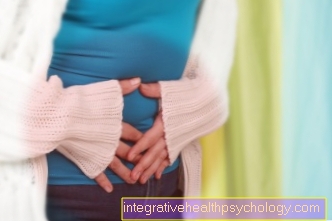
The pill is used for contraception - it prevents the woman from becoming pregnant despite an active sex life. All in all, the pill is the safest contraceptive as long as it is taken correctly and has enough time to be absorbed into the blood through the intestines (reabsorbed).
The pill is an oral contraceptive, which means that the pill is taken in through the mouth (orally), i.e. swallowed, and from there it gets into the stomach and further into the intestines. It is only in the intestine that the active ingredients (various hormones such as estrogens and gestagens) in the pill pass through the intestinal wall and get into the blood. This process is known as resorption. This time from the mouth to the intestines and from the intestines to the blood lasts differently for each pill, but mostly around four hours. This means that it takes four hours for the pill to even have an effect.
If a patient takes the pill and has to vomit shortly afterwards, the pill may be excreted from the body without developing its active ingredients.
In this case, the pill will have no effect and will not prevent ovulation. If sexual intercourse then occurs, this means that the woman's egg can be fertilized due to the lack of protection from the pill and conception can then occur.
Read also: Ovulation despite the pill
It is important to know that the man's sperm can survive in the woman for around 3-5 days. If a woman vomits one day after unprotected intercourse, there is also a risk of pregnancy because the pill is ineffective, but the sperm are still active. Even a few days after vomiting, unprotected intercourse is not safe, as ovulation may have been triggered later.
So there are a few rules that you should follow if you “lose” the pill through vomiting or diarrhea and the pill is therefore ineffective. First of all, it is important to know that the pill does not lose any effect from nausea. It is only important that the patient does not vomit the pill. If you vomit the pill, it is important to pay attention to the timing.
- If there are at least 4-5 hours between vomiting or diarrhea and taking the pill, there is a very high probability that the pill has already been absorbed into the blood and has already developed its effect. If you still want to be on the safe side, you should use condoms in addition to the pill for at least 7 days after vomiting or diarrhea so that there is safe protection.
- If there are less than 4 hours between vomiting or diarrhea and taking the pill, there is a high probability that the pill will have no effect and the pill should be taken again.
The pill is safe in the case of pure nausea, but for absolute safety you should also use a condom to prevent nausea, as the nausea often leads to diarrhea or vomiting, which then leads to the loss of the pill's effectiveness.
However, it is often the case that a patient has diarrhea (Diarrhea) and threw up not just once but several times. In this case, you should also avoid having sexual intercourse with a condom, as the safety of the pill is no longer guaranteed due to diarrhea or vomiting.
If a patient has been vomiting or diarrhea for several days, the pill has no effect and spotting or premature menstruation (period, "days") may occur. In this case, these are proof that the pill was no longer effective. In this case, the next pill intake should be discussed with the gynecologist and also depends on the patient's state of health.
also read: Abdominal pain from pill and diarrhea after alcohol and pill

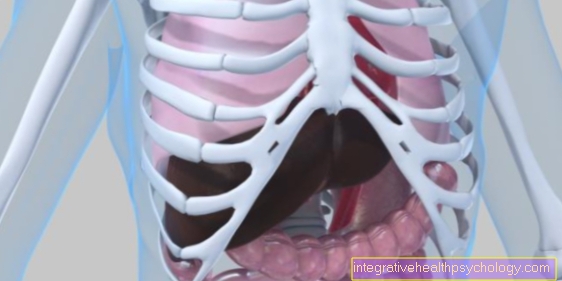
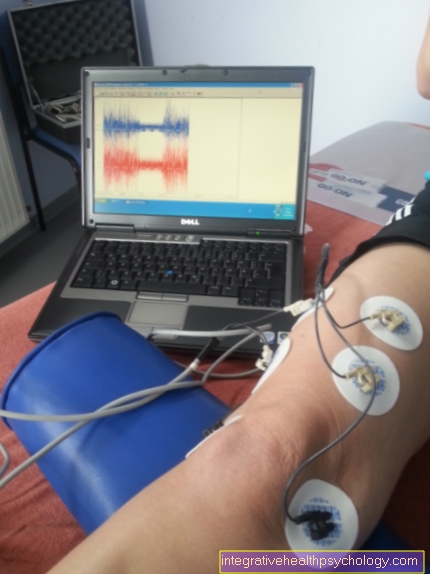



.jpg)



